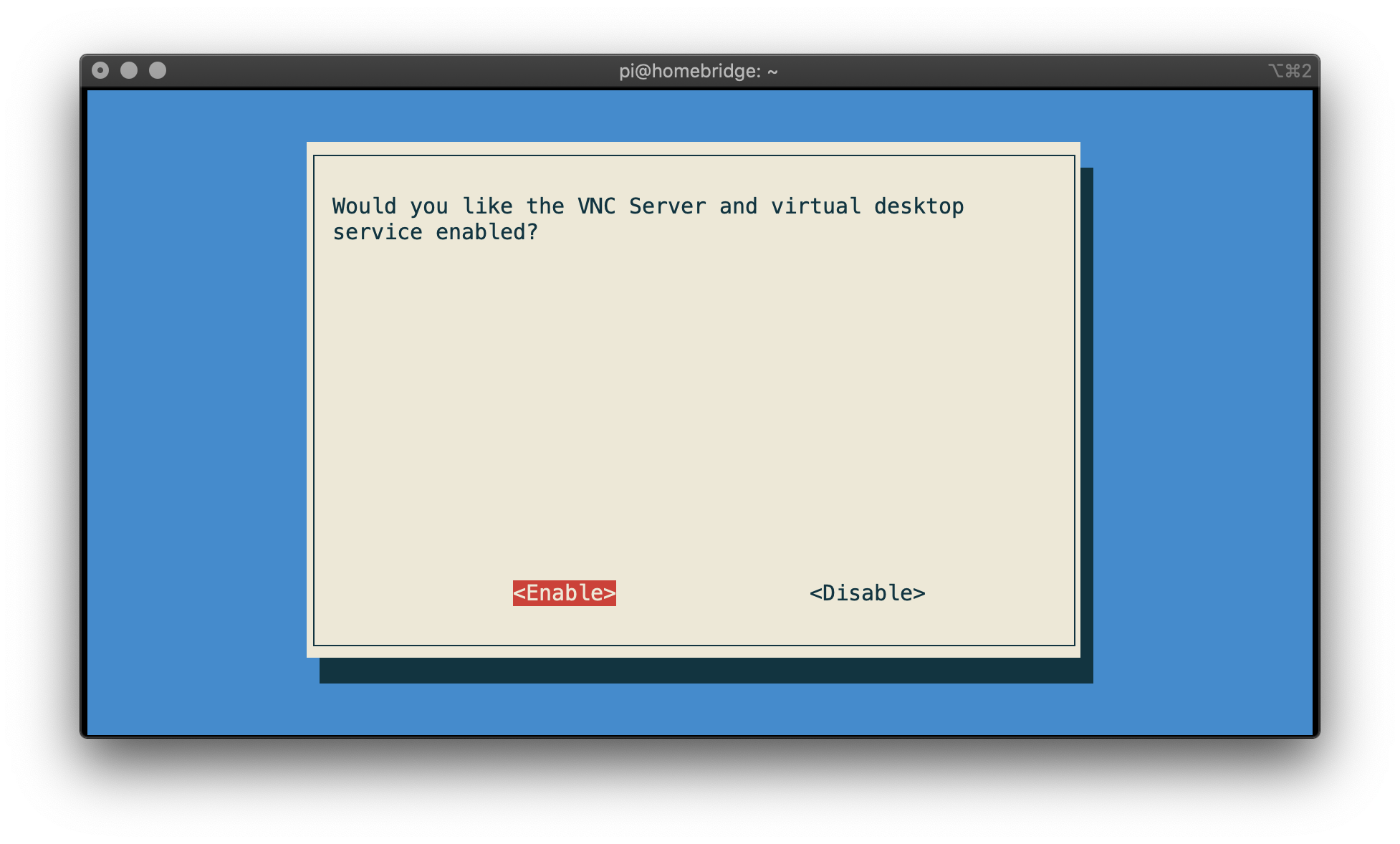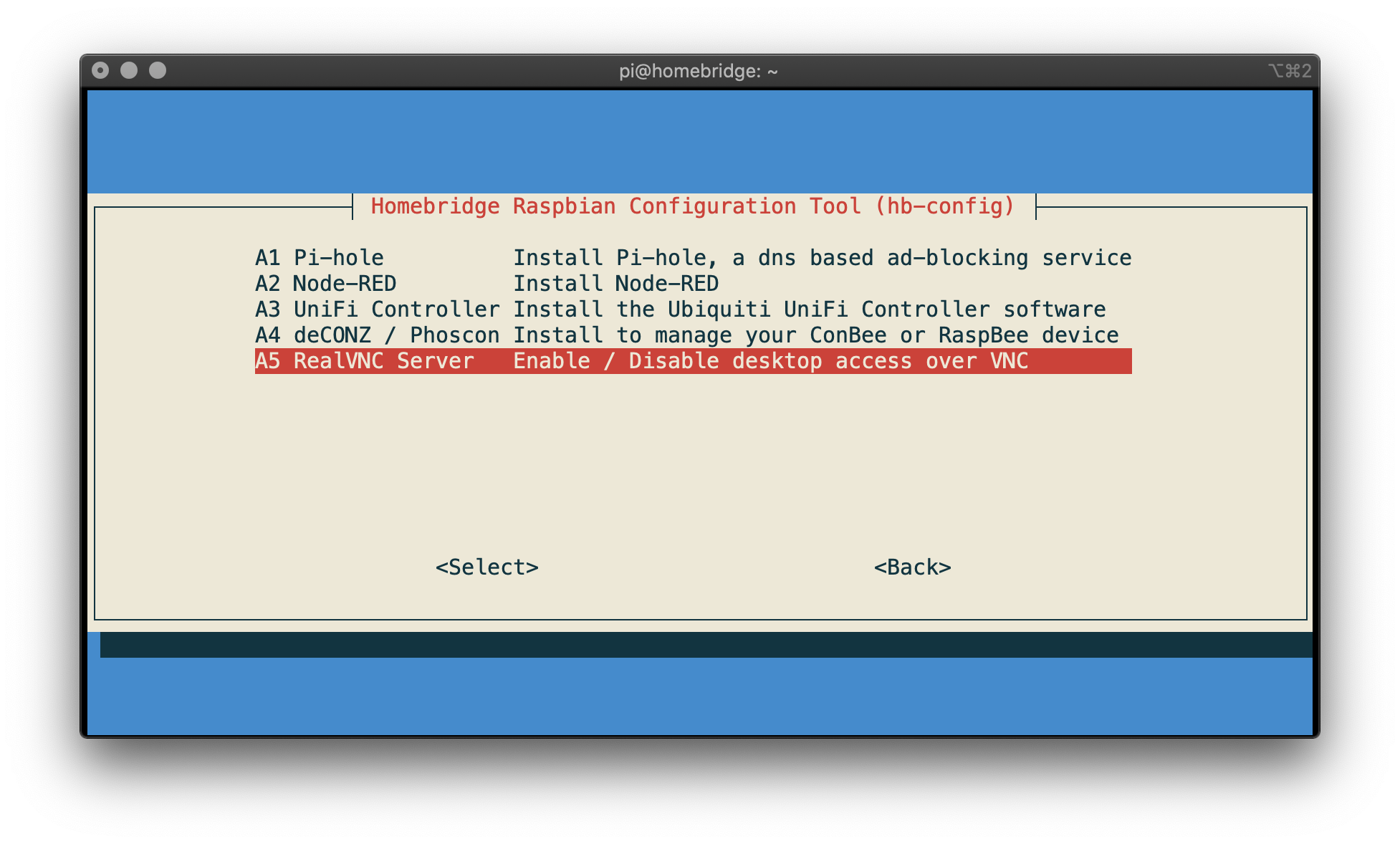Listen up, tech enthusiasts! If you're diving into the world of Raspberry Pi and exploring Raspbian VNC, security should be your top priority. Imagine leaving your front door unlocked while you're away—sounds risky, right? The same goes for your Raspbian VNC setup. In this guide, we'll break down everything you need to know to lock down your system and keep prying eyes out.
Nowadays, remote access tools like VNC (Virtual Network Computing) are game-changers for managing your Raspberry Pi from anywhere. But here's the thing: with great power comes great responsibility. Without proper security measures, your VNC server could become an open invitation for hackers. We’ve all heard horror stories about compromised systems, so let’s make sure that doesn’t happen to you.
This article isn’t just another tech tutorial—it’s your personal security manual. We’ll walk you through step-by-step tips, tricks, and best practices to fortify your Raspbian VNC setup. Whether you're a beginner or a seasoned pro, there's something here for everyone. So grab a cup of coffee, sit back, and let’s get started!
- Unlock Your Entertainment A Deep Dive Into 7starhdin
- Aditimistry Hot The Rising Star Whos Making Waves In The Industry
Before we dive deeper, here’s a quick table of contents to help you navigate this guide:
- Raspbian VNC Basics
- Why Security Matters in Raspbian VNC
- Common Security Risks to Watch Out For
- Setting Up VNC on Raspbian
- Securing Your VNC Connection
- Using SSH Tunnel for Enhanced Security
- Firewall Configuration Tips
- Password Management Best Practices
- The Importance of Regular Updates
- Troubleshooting Common Issues
Raspbian VNC Basics: Understanding the Foundation
Let’s start with the basics, shall we? Raspbian is the go-to operating system for Raspberry Pi users, offering a robust platform for a wide range of projects. VNC, on the other hand, allows you to remotely control your Raspberry Pi’s desktop interface from another device. It’s like having a virtual pair of hands to tweak settings, run applications, or troubleshoot issues from afar.
But here’s the catch: VNC isn’t inherently secure. By default, it transmits data in plain text, making it vulnerable to interception. Think of it like sending a postcard with all your personal info written on it—anyone can read it if they intercept it. That’s why securing your VNC connection is crucial.
- Deep Hot Link The Ultimate Guide To Understanding Its Power And Risks
- Filmyflycom Hd Your Ultimate Destination For Latest Movies And Entertainment
What Makes Raspbian VNC So Popular?
Raspbian VNC is loved by makers, educators, and hobbyists alike because it’s easy to set up and use. Here are a few reasons why it’s such a hit:
- Accessibility: VNC lets you access your Raspberry Pi from any device with an internet connection.
- User-Friendly Interface: It mirrors your Raspberry Pi’s desktop, so there’s no steep learning curve.
- Flexibility: You can use it for everything from coding projects to home automation.
However, with great flexibility comes great responsibility. Let’s not forget that securing your setup is just as important as setting it up in the first place.
Why Security Matters in Raspbian VNC
Imagine this scenario: you’ve spent hours setting up your Raspberry Pi for a home automation project. You’ve got smart lights, thermostats, and even a security camera system connected to it. Now, what if someone unauthorized gains access to your VNC server? They could potentially control your entire home setup, compromise your data, or worse—cause physical damage.
Security matters because your Raspberry Pi isn’t just a toy; it’s a powerful tool that can store sensitive information or control critical systems. Without proper safeguards, you’re leaving yourself exposed to potential threats. Here’s why you should care:
- Data Protection: Your Raspberry Pi might store important files, credentials, or configurations.
- System Integrity: Unauthorized access can lead to malware infections or system corruption.
- Privacy: If your Pi controls IoT devices, a breach could compromise your personal privacy.
By securing your Raspbian VNC setup, you’re not just protecting your project—you’re protecting your entire digital ecosystem.
Common Security Risks to Watch Out For
Now that we’ve established why security is important, let’s talk about the common risks associated with Raspbian VNC. Awareness is half the battle, so here’s what you need to watch out for:
1. Weak Passwords
Using simple or predictable passwords is a rookie mistake. Hackers use automated tools to guess passwords, and if yours is “password123,” you’re practically rolling out the red carpet for them. Always use strong, unique passwords for your VNC server.
2. Unencrypted Connections
As mentioned earlier, VNC transmits data in plain text by default. This means that anyone intercepting your connection can see everything you’re doing. To prevent this, you need to encrypt your VNC traffic using tools like SSH tunnels or SSL certificates.
3. Outdated Software
Software updates aren’t just about new features—they often include critical security patches. Running outdated versions of Raspbian or VNC can leave you vulnerable to known exploits. Always keep your system up to date.
4. Exposed Ports
Leaving your VNC port open to the public is like leaving your house keys under the doormat. Firewalls and port forwarding should be used judiciously to restrict access to your VNC server.
Setting Up VNC on Raspbian
Before we dive into security measures, let’s quickly go over how to set up VNC on Raspbian. If you’re already familiar with this, feel free to skip ahead.
Step 1: Update your Raspbian system by running:
sudo apt update && sudo apt upgrade
Step 2: Install the RealVNC server:
sudo apt install realvnc-vnc-server realvnc-vnc-viewer
Step 3: Enable VNC in the Raspberry Pi Configuration tool:
sudo raspi-config
Then navigate to Interfacing Options > VNC and enable it.
Step 4: Connect to your Raspberry Pi from another device using a VNC client. You’ll need your Pi’s IP address and login credentials.
That’s it! Now let’s move on to securing your setup.
Securing Your VNC Connection
Alright, so you’ve got VNC up and running. Now it’s time to lock it down. Here are some essential steps to enhance your Raspbian VNC security:
1. Use Strong Authentication
Set a strong password for your VNC server. A strong password should include a mix of uppercase and lowercase letters, numbers, and symbols. Avoid using easily guessable information like birthdays or pet names.
2. Change Default Ports
VNC typically runs on port 5900. Changing this to a non-standard port can deter casual attackers. You can do this by editing the VNC server configuration file:
sudo nano /etc/vnc/config.d/common
Then add or modify the line:
VNCSERVERARGS[0]="-geometry 1024x768 -rfbport 5901"
3. Enable Two-Factor Authentication
Two-factor authentication (2FA) adds an extra layer of security by requiring a second form of verification, such as a one-time code sent to your phone. While VNC itself doesn’t support 2FA directly, you can use SSH as a secure gateway, which does support 2FA.
Using SSH Tunnel for Enhanced Security
One of the most effective ways to secure your VNC connection is by tunneling it through SSH (Secure Shell). SSH encrypts all data transmitted between your devices, making it much harder for attackers to intercept.
Step 1: Install SSH on your Raspberry Pi:
sudo apt install ssh
Step 2: Start the SSH service:
sudo systemctl start ssh
Step 3: On your local machine, create an SSH tunnel:
ssh -L 5900:localhost:5900 pi@your_pi_ip
Replace your_pi_ip with your Raspberry Pi’s IP address.
Step 4: Connect to VNC through the tunnel using localhost as the address.
Voila! Your VNC connection is now encrypted and secure.
Firewall Configuration Tips
A firewall is your first line of defense against unauthorized access. Here’s how to configure it for your Raspberry Pi:
1. Install UFW (Uncomplicated Firewall):
sudo apt install ufw
2. Allow SSH and VNC Ports:
sudo ufw allow 22 (for SSH)
sudo ufw allow 5900 (for VNC)
3. Deny All Other Incoming Connections:
sudo ufw default deny incoming
4. Enable the Firewall:
sudo ufw enable
With these settings, only SSH and VNC connections will be allowed, keeping your system safe from unwanted intruders.
Password Management Best Practices
Password management is a critical part of securing your Raspbian VNC setup. Here are some tips to help you stay safe:
- Use a Password Manager: Tools like LastPass or Bitwarden can help you generate and store strong, unique passwords.
- Avoid Reusing Passwords: Each account should have its own unique password to prevent a breach in one place from affecting others.
- Enable Password Expiry: Set your system to require password changes periodically to minimize the risk of compromised credentials.
The Importance of Regular Updates
Keeping your software up to date is one of the easiest ways to improve security. Updates often include patches for vulnerabilities that could be exploited by attackers. Here’s how to stay on top of updates:
Step 1: Schedule regular updates using a cron job:
sudo crontab -e
Add the line:
0 2 * * * sudo apt update && sudo apt upgrade -y
This will run updates every day at 2 AM.
Step 2: Monitor for security advisories. Subscribe to mailing lists or follow official Raspberry Pi channels to stay informed about potential threats.
Troubleshooting Common Issues
Even with the best security measures in place, things can still go wrong. Here are some common issues and how to fix them:
1. Unable to Connect to VNC
Make sure VNC is enabled and running. Check your IP address and ensure there are no firewall rules blocking the connection.
2. Slow Performance
Optimize your VNC settings by reducing screen resolution or color depth. You can also try using a faster network connection.
3. Security Alerts
If you receive security alerts, investigate them immediately. Check your logs for suspicious activity and consider resetting your passwords as a precaution.
- Aditi Mishra Nude Video Unveiling The Truth Behind The Viral Sensation
- Aditi Mistry Private Life Unveiling The Layers Beyond The Spotlight


